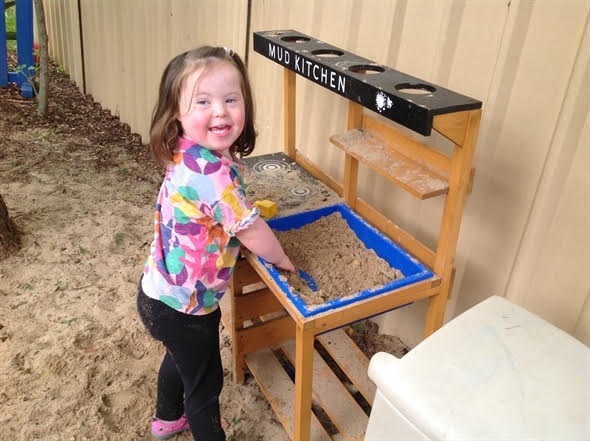During NICU Awareness month these Miracle Mums have special insights for ECEC

Each November the Miracle Babies Foundation hosts an annual NICU (Neonatal Intensive Care Units) Awareness Month, highlighting the importance of Neonatal Intensive Care Units, and their dedicated staff, across Australia.
Throughout the month, the community, government and organisations are called upon to help raise awareness, but also raise vital funds to support more families challenged by prematurity or sickness, along with saying thank you and acknowledging the wonderful work to the NICU and Special Care Nursery teams, Miracle Babies Co-Founder and CEO, Kylie Pussell explained.
We reached out to the Foundation, and some of the families it has supported, to learn more about the unique experiences of NICU families, how early childhood education and care (ECEC) services can best support them, and for any advice, hints, or tips they have for working with others in the same position.
The Sector would like to thank Miracle Mum, Anne-Marie, and her five year old daughter Ella for sharing their story, along with Miracle Mum Elizabeth, and her six year old twins Jacinta and Kyah.
A unique entrance into the world of parenting
When the twins began care, Elizabeth said she wished there was more understanding of the medical vulnerabilities of children who were born prematurely, leaving them more at risk or more prone to getting illnesses such as colds, flus, or asthma.
This, she said, may mean more days absent or in the worst case scenario a child falling behind academically, especially during the recent pandemic years.
For other families who have premature infants, her advice is to share any medical complications from a premature birth either physically or developmentally with the educators.
“It’s important for services to have those honest and hard conversations if a child isn’t developing on par with their peers or doesn’t have an appropriate learning plan in place to support them,” she explained.
“It’s beneficial for services to have access to an inclusion support professional who can support them and the family with strategies to enhance the child’s learning and development. Or have a list of local agencies in the allied health department such as OT’s, speech pathologists, physios etc.”
How can services support? What could they be doing differently?
In Ella’s case, the NICU had prepared a letter about her care, outlining not only her prematurity, but her diagnosis of Down Syndrome. This is something Anne-Marie is preparing to share with the school when Ella begins in 2022. In the meantime, she said, the current ECEC service “has been amazing in understanding Ella’s needs.”
“During the winter months she has a continuous runny nose for most of the time as she has narrow airways,” Anne-Marie explained.
Once the ECEC service received the letter from the doctor to say that it was not contagious, exceptions to the illness policy were made, and Ella was allowed to continue going to daycare.
Having a service which is inclusive, understands Ella’s needs, and is willing to work as part of a team with doctors and therapists has made all the difference to her journey in ECEC, Anne-Marie said.
Practicalities
In terms of practical support, Elizabeth suggested that if there is a sibling of an enrolled child in the NICU, services may be able to support the family with fuel vouchers, food services or the like to ease the burden financially.
“Also services should support the NICU by celebrating special days such as NICU Awareness Day, or Wear Purple for Prems,” she continued.
“It shows that they value the connection some families have to the NICU and that it was part of their journey early on. It is a great way for services to show a connection and sense of belonging to their community.”
Adapting enrolment forms to include information about premature birth is also a sensitive yet practical suggestion Elizabeth had for opening the conversation.
“Parents may already have post traumatic stress from a premature birth,” she explained, “and as such, may have heightened anxiety during times of transition such as their child starting preschool/school. It may be useful for carers and educators to be aware of this so they are able to support families without judgement.”
To learn more about the work of the Miracle Babies Foundation please see here.
Popular

Economics
Policy
Provider
Workforce
Prime Minister Albanese backs Tasmanian Labor’s childcare plan, highlights national early learning progress
2025-06-30 10:42:02
by Fiona Alston

Events News
Marketplace
Practice
Provider
Quality
Research
Workforce
How do you build and keep your dream team? ECEC Workforce and Wellbeing Forum tackles the big questions
2025-06-24 15:20:53
by Fiona Alston

Economics
Provider
Quality
Practice
Policy
Workforce
South Australia announces major OSHC sector reforms aimed at boosting quality and access
2025-06-30 09:49:48
by Fiona Alston












